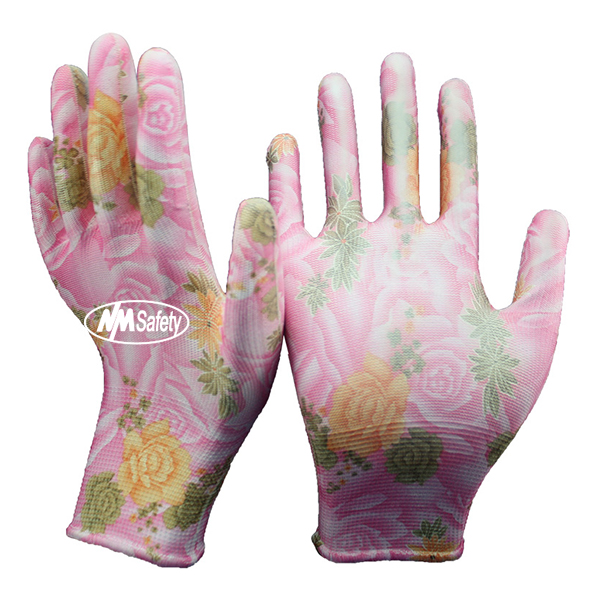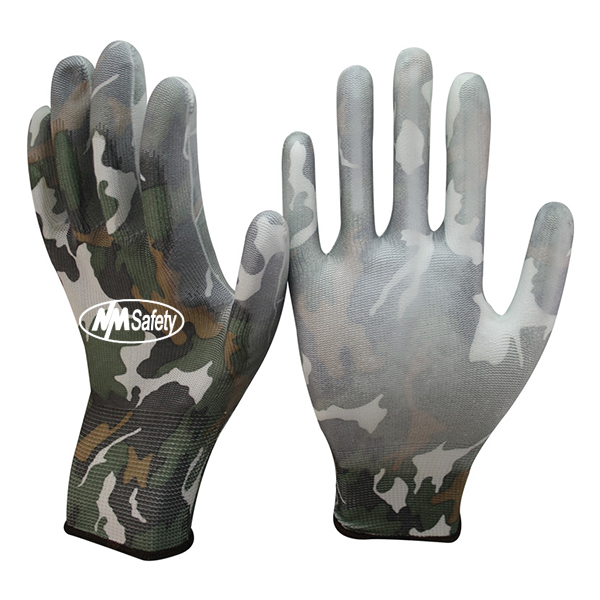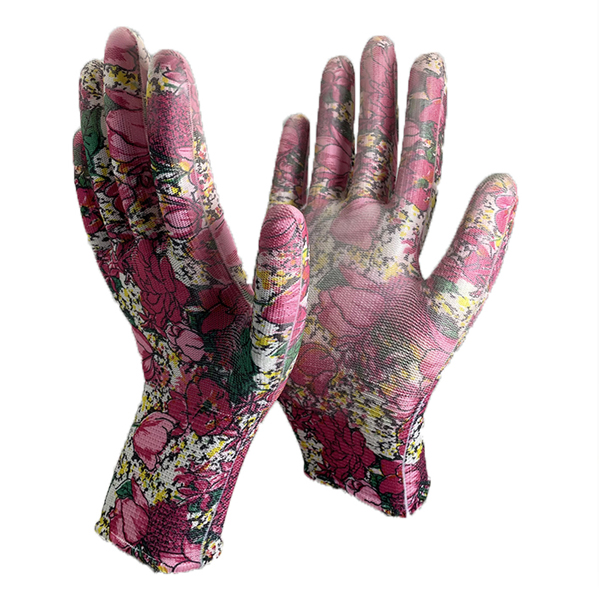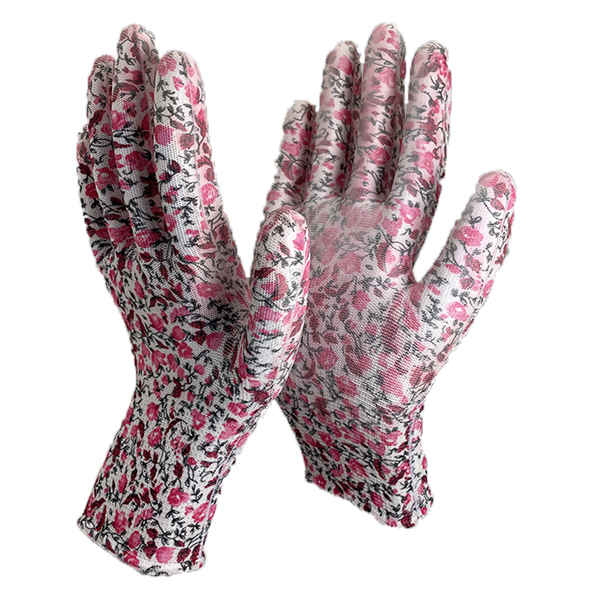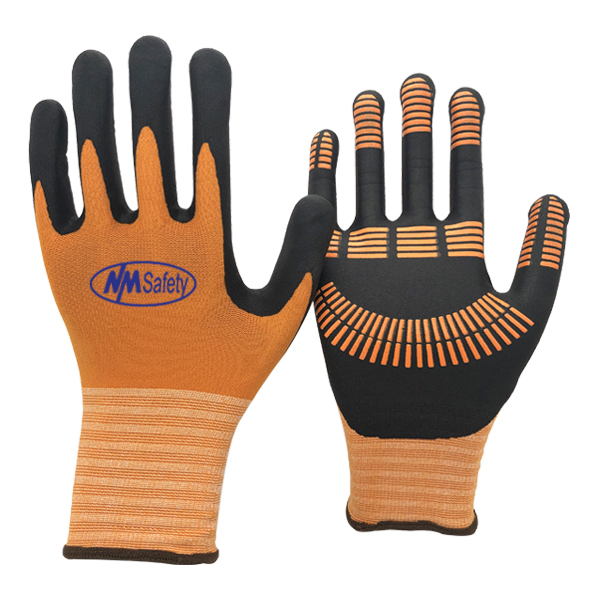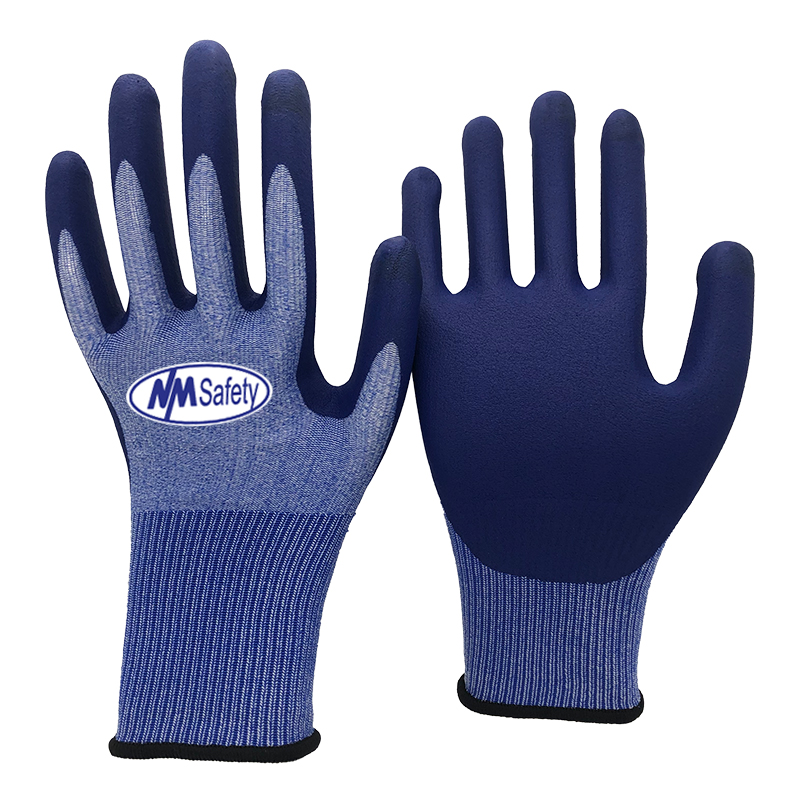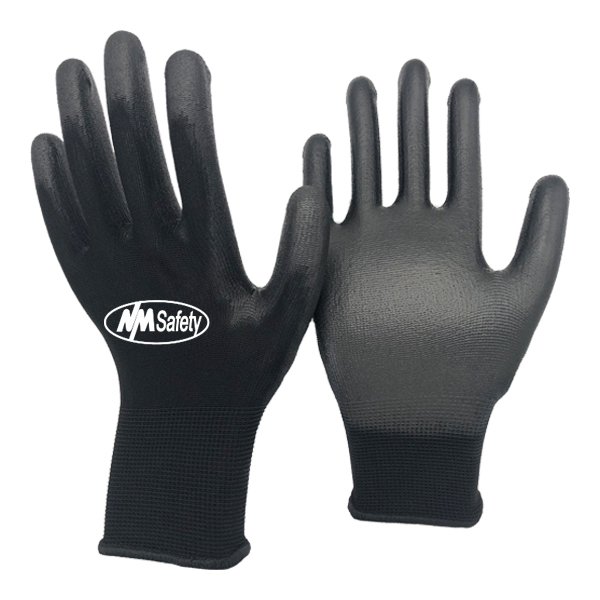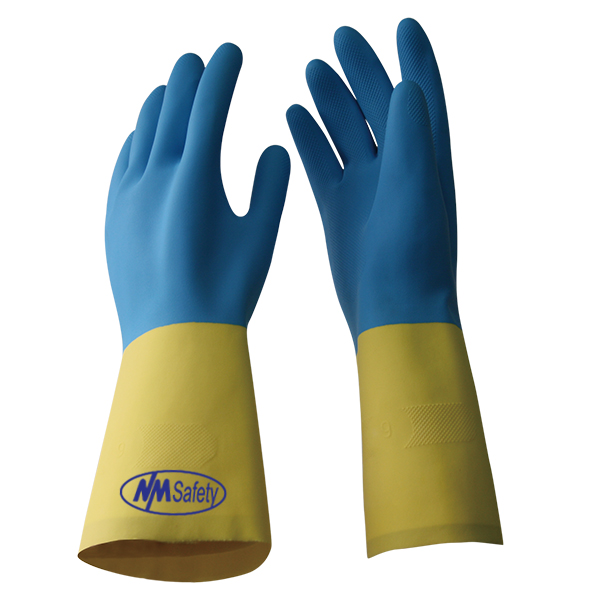What Is the Definition of Palm Coated Gloves? Work gloves with palms that have been coated with a protective substance are known as palm-coated gloves. The sort of material used influences the level of protection provided; for example, nitrile gloves provide a higher level of protection than PVC gloves. You can get these gloves from Garden glove Supplier.
Palm-coated gloves are a common type of protective equipment since the palm is the principal contact point when workers hold items. Abrasion resistance is the most prevalent sort of protection provided by palm coating, and it is utilized to keep the glove's integrity when handling work equipment.
Printed Polyester PU Palm Coated Gloves: What to look For: Because there is such a large selection of PU-coated gloves on the market, you may find it difficult to locate one that is suitable for your business or industry. These gloves are available at Garden Glove Supplier. However, there are a few things to consider to purchasing the best PU-coated gloves for your needs:
- Protection: Because PU-coated gloves come in a variety of cut resistance levels, materials, and liners, you must first determine your unique requirements. If you work with materials that provide a significant risk of injury regularly, choosing a high cut level is critical.
- Comfort: The thickness or thinness of the gloves has a big impact on how comfortable they are. The less flexible the gloves are, the thicker they are. If your profession requires a high level of dexterity, use PU-coated gloves that are thinner and more comfortable. They should also have breathable qualities so that workers' hands don't get sweaty and don't feel uncomfortable wearing them for long periods.
- Weight levels: PU-coated gloves, like the other categories, can be found in a variety of weight levels. Lightweight PU-coated gloves are preferable for extended usage since they reduce hand fatigue.
Palm Coated Gloves and Safety: Many workplace tasks, particularly in construction, are legally required to use protective gloves, according to occupational health and safety regulators. This is due to the vast number of construction operations that require workers to hold hazardous materials or put their palms under physical stress. Palm-coated gloves may be required for ergonomic reasons, as they provide additional gripping power when holding equipment for long periods. Nitrile, polyurethane, latex, PVC, and Kevlar are some of the popular coatings used for palm protection. Nitrile coatings are often utilized for puncture, abrasion, and tear resistance, as well as oil resistance. Chemicals, such as oils and glue, can be prevented from adhering to the glove with the use of certain coatings.
Unless they have been tested and certified to fulfill a recognized quality standard, such as an ANSI/ASTM (North America) or EN (Europe) standard, palm-coated gloves cannot be used to meet occupational health and safety requirements. Every glove standard targets a certain form of hazard protection; for example, ASTM F2992-15 specifies the cut resistance of a material. Cut-resistant gloves with an A1 rating can withstand a blade stroke of at least 200 grams of force, while gloves with an A9 rating can withstand a blade stroke of up to 6,000 grams of force.
Work gloves with a polyurethane coating: PU coated or Polyurethane coated work gloves have grown in popularity in recent years, particularly in the industrial industry. Because of the advantages of these non-disposable gloves, many industries have replaced their leather gloves with PU-coated gloves.
PU-coated gloves are now available in a range of colors and functions. With a high EN388 mechanical score and exceptional abrasion ratings, it's no surprise that many industries prefer to use these gloves today.
Industrial use of Polyurethane coated work gloves: Polyurethane (PU) gloves have a surface resistance of 10 7th ohms. When wearing a PU glove, the fingertip friction is difficult to generate static electricity and has little adsorption ability for the dust in the environment. At the same time, the PU resin does not contain silicon, and it does not leave marks or sweat marks after contact with other items. The dust-free purification space, electronics industry, and semiconductor sector all employ PU dipped gloves. Good electrical insulation, microporous system, superb hand feeling, exceptional elasticity, outstanding wear, and tear resistance are all features of PU-coated gloves. 13/15 gauge polyester, 13/15/18 gauge nylon (polyurethane coated nylon gloves), and 13/15 gauge carbon fiber are common glove shells for PU work gloves (also there is a very hot-selling cut-resistant HPPE with PU coated work glove, we will give more details in the section of Cut Resistant Glove). The copper wire conductive fiber/carbon wire anti-static fiber is woven into the long-fiber polyester nylon so that the glove does not adhere to the skin. Under the potential, static electricity is prevented from forming fine dust, and the working environment is clean and pleasant.
Gloves with polyurethane palm-coating: The abrasion resistance of polyurethane palm-covered gloves is higher than latex and comparable to nitrile. G40 polyurethane-coated gloves are highly recommended since they are the lightest in hand and are less expensive than latex and nitrile.
The Advantages Of PU Coated Gloves: So, what is it about PU-coated gloves that makes them so appealing? What is it about these gloves that makes them such a hot product in the manufacturing world?
- It is possible to make these gloves thinner:
These gloves may be thinner than regular work gloves, depending on the liner used. Why is this a better option? It's because it gives you more dexterity in your hands. Because these gloves are thinner, they are more comfortable to wear. It's an excellent solution for businesses where workers need to feel what they're doing, such as the automotive industry or industries that make or assemble small items.
- They are reasonably priced:
Polyurethane-coated gloves are more economical in a business that requires a large number of these gloves to be worn regularly. The price varies depending on the thickness of the material and the type of liner used, but if you have a specific budget in mind, you'll be able to locate PU-coated gloves that fit your needs. In reality, even the highest-quality PU-coated gloves cost a third of the average price of general-purpose gloves.
- They have a great grip:
The tacky surface of these gloves is due to the polyurethane coating. It will therefore provide a better and more effective grip, which is ideal for industries that work with smooth and slick objects.
Conclusion: Gloves with a PU coating are ideal for a variety of tasks. However, because they come in a variety of thicknesses and widths, make sure you pick the ones that are right for your company. Your nearby Garden Glove Supplier has these gloves in stock.





